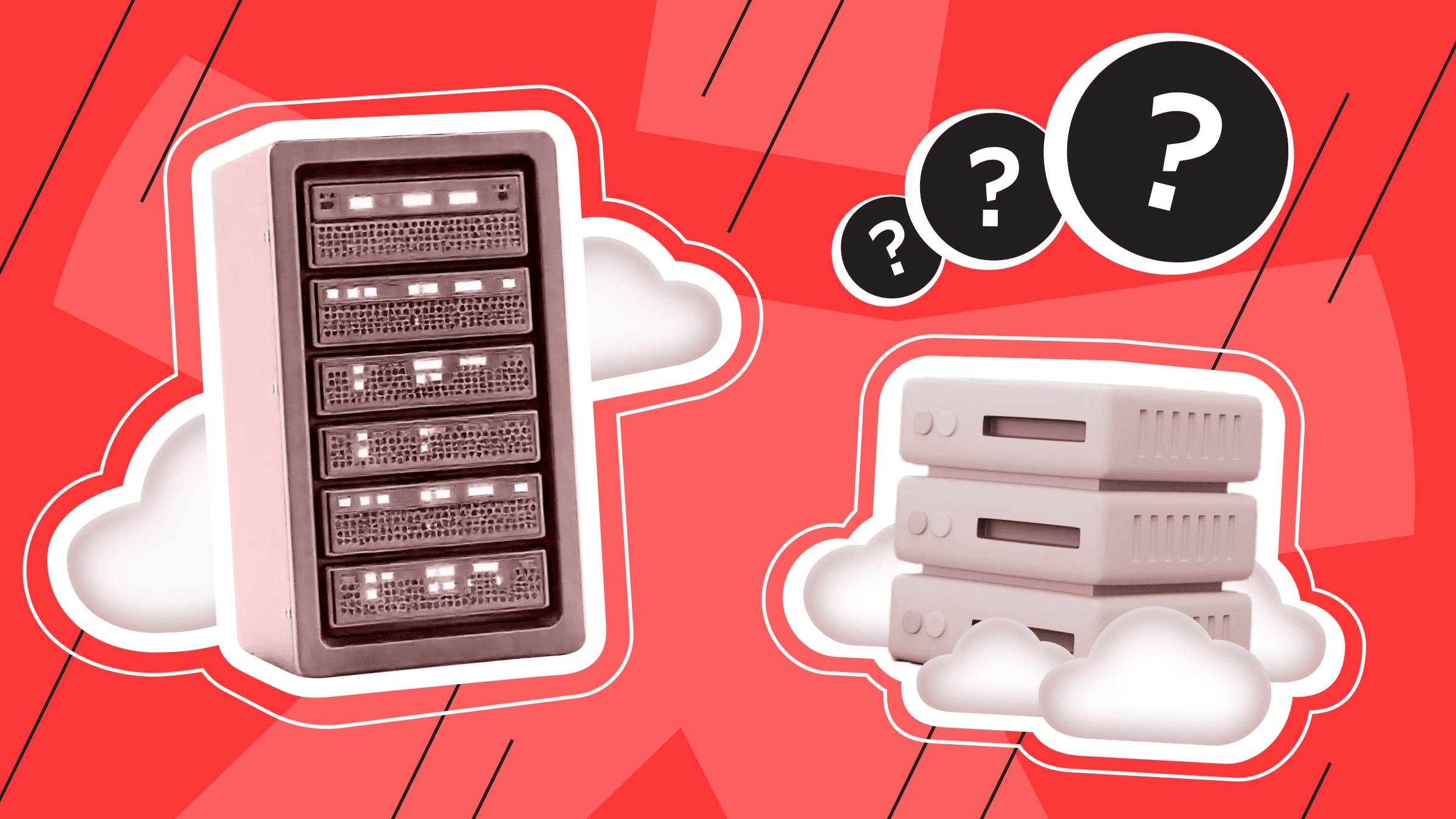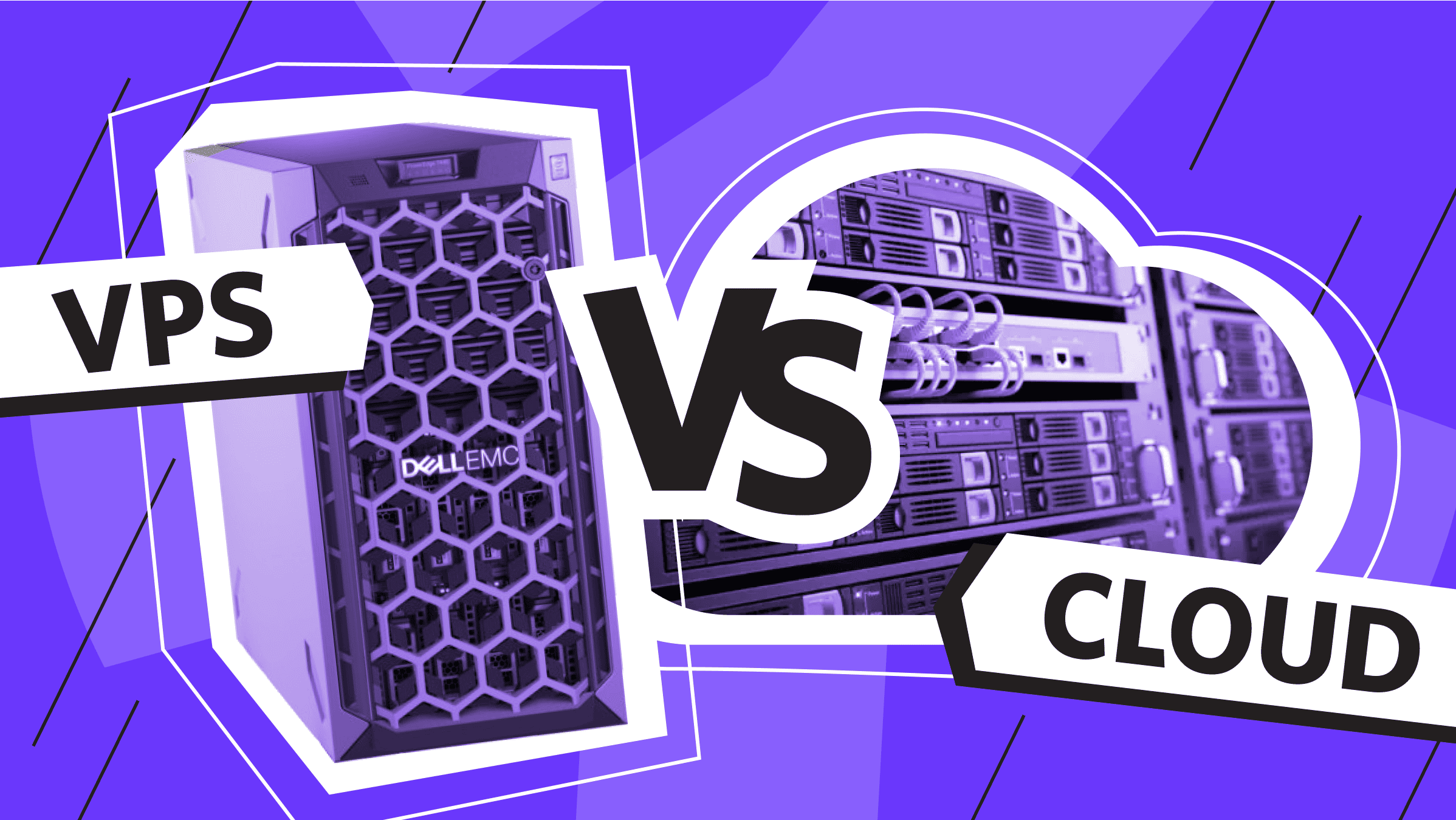
Undoubtedly, online success depends significantly on having a suitable hosting solution, probably even more than one might expect. It involves factors such as performance, security, and user experience. Virtual Private Servers (VPS) and dedicated servers are two of the most common options, each serving different purposes effectively.
As a result, “VPS vs dedicated server” became a common debate among organizations and individuals trying to find the optimal web host. For example, VPS is used mostly for mid-sized projects because it is cost-effective and enabling. On the other hand, dedicated servers are the best solution for a website with a large volume of traffic and for applications requiring heavy resource options, as they are remarkable in performance and control. This article will explain in detail what VPS and dedicated servers are, how they differ, and what benefits they offer.
What is VPS Hosting Used for?
A Virtual Private Server (VPS) is a virtualized server that operates within a larger physical server. Virtualization technology allows you to divide a single physical server into multiple isolated virtual environments, each with its own resources, like CPU, RAM, and storage. These virtual environments function independently, giving users more control and customization than shared and dedicated hosting.
One of the best aspects of a VPS is that it offers a similar experience to that of a dedicated server but at a lower price. Therefore, when comparing VPS and dedicated servers, a VPS is often a practical choice, especially for small or medium-scale projects. Each VPS, offered by different VPS providers, is allocated a specific portion of the physical server's resources, ensuring that users can access a guaranteed amount of computing power and storage. This isolation means other users on the same physical server do not influence your hosting environment much, making it more stable and reliable.
In most VPS hosting plans, a user is allowed to customize quite a few features. For example, you can choose any operating system, install specific software, and change settings to suit your needs. This flexibility makes VPS a great option for both corporate clients and non-corporate individuals who require more than shared hosting offers but do not have enough budgets for a whole dedicated server.
Get the most out of your budget with our affordable, efficient VPS solutions. Fast NVMe, 30+ countries, managed and unmanaged VPS.
What is Dedicated Hosting?
Now let's answer the question, what is a dedicated server? It’s basically a physical server used exclusively by one person or company. When considering VPS vs dedicated server, the latter is the clear winner when it comes to performance and security. Using this kind of technology means you have complete ownership of your allocated resources, like CPU, RAM, hard disk, and even the bandwidth. It benefits anyone who needs more resources than what's available in a shared hosting or VPS service, where bandwidth is divided among many users. As a result, you’ll experience superior performance and reliability, making dedicated server web hosting ideal for busy websites, applications requiring high resources, or businesses with specialized requirements.
People using a dedicated server can choose whatever hardware and software they want. For instance, they can select the operating system they want, download the programs they need, or set up security however they like. This is a major benefit for the company because increasingly more people need better security or specialized performance and regulatory settings.
Dedicated servers aren't shared by multiple users, so they're more reliable and perform better than other types. As a result, websites and apps hosted on these servers can support more users, and they'll still be just as productive. Plus, dedicated servers let you store more apps safely because you can control the security features and set up your own security systems.
Key Differences

When it comes to VPS vs dedicated servers, it is very important to highlight the architectural differences between the two. Here's a quick rundown of the most in-demand performance metrics, and we'll go into more detail later in the article:
|
Feature |
Managed and unmanaged VPS |
Dedicated Server |
|
Resource Allocation |
Shares resources from a physical server with allocated resources for each VPS. |
All resources are dedicated to a single user, ensuring maximum availability. |
|
Performance |
Good performance but can be affected by other VPSs on the same physical server. |
Much better performance because every resource within the server belongs to one user. |
|
Scalability |
Users can easily scale up resources or plans whenever they feel like it. |
Scalability is limited as one will have to suffer physical upgrades for additional resources. |
|
Cost |
More affordable and optimal for small and medium-sized organizations. |
Higher costs due to exclusive resource allocation; ideal for larger enterprises. |
|
Security |
A fair performance but hardware is shared which creates safety concerns. |
Better performance where users control all elements related to securing the systems. |
|
Management |
Management of the resources will require some technical skills. |
Offers complete control and customization for advanced management. |
Resource Allocation
Basically, even though you get virtual dedicated resources, your VPS server cloud is hosted on a physical server with other VPSs, so you do share resources like CPU, RAM, and disk space. Each virtual server is allocated some of these resources, so users can benefit from a certain level of processing power. However, other VPS instances on the same server can affect the performance of one VPS because resources are shared. This is a good summary of the VPS hosting vs dedicated server discussion.
The dedicated server allows full utilization of its resources. In other words, no one else is using the CPU, RAM, or hard drives of the server assigned to you. This ensures that every dedicated server owner gets optimum usage of the resources and performance, which is very important when considering the VPS vs dedicated server options.
Performance

Most applications can work properly even when they are based on virtual server hosting; however, the performance may be influenced by the resource usage of the physical machine. For example, if many VPS instances are employed and make extensive demands on the host’s resources, overall performance will suffer. Still, the virtualization technology ensures that each VPS is isolated, contributing to greater stability.
Dedicated servers deliver superior performance since all resources are dedicated to a single user. This means that apps on a dedicated server can handle a lot of traffic and heavy tasks without slowing down. No resources are shared, so there's no risk of slowdowns from other users. This is a key advantage to note in the VPS vs dedicated server debate, particularly for high-traffic or resource-intensive applications.
Scalability
You can easily scale up and down with VPS solutions by just adding more resources as your needs change. For example, it can be more CPU, RAM, or storage without significant downtime, which is very much appreciated by businesses that anticipate fluctuating resource demands. This flexibility is often highlighted in the VPS vs dedicated server comparison, especially for businesses with fluctuating demands.
It is possible to scale dedicated servers as well, but it's a more complex process and requires physical upgrades. This may involve adding new drives or increasing RAM, which can be expensive and time-consuming. To that end, scaling a dedicated server could lead to downtime which is not great for organizations that must change quickly.
Cost

Cost is another one of the biggest advantages of VPS. In the VPS server vs dedicated server comparison, since users share the physical server's resources, VPS plans are generally more affordable than dedicated server options. That's why VPS is usually a good fit for small to medium-sized businesses that want more control than shared hosting but can't justify the higher costs of a dedicated server.
Dedicated servers don't share their resources, so they cost more. They also offer better performance, security, and control. Larger corporations or apps that have high resource demands would be well-suited to dedicated servers, however, such solutions can often be overkill for low-resource projects and limited-budget businesses.
Security
VPS web hosting security is fairly guaranteed as a virtual server does not interfere with other virtual servers. However, since multiple users share the same physical hardware, there’s a chance of security breaches if vulnerabilities are exploited. Users can add their own security features while hoping that the VPS hosting provider’s infrastructure is also secure.
Dedicated servers represent the best of security technology. This is because all the server’s resources are available to one person or organization. They're a good fit for organizations that work with sensitive data and must abide by strict rules and regulations. Since the whole server is at the organization's disposal, confidentiality breaches are less likely to occur. Also, users of dedicated servers can adjust the security settings if necessary so that more extensive procedures can be taken if the usual measures don't work.
Management
VPS administration is not easy as it requires some technical skills to configure and use the resources. Users need to monitor how resources are being consumed and adjust the parameters and services to maintain the server's optimal performance. Most hosting services come with control panels, but most of the time, some level of understanding is useful for maintenance and getting the most out of the server.
On the other hand, dedicated servers give you a full set of customization tools that allow you to take control of all the features. Users can organize the server operating system any way they want, install the applications they want, and configure security applications according to their requirements.
It is especially useful for organizations that have to meet some specifications, or organizations that have decreased scope or must follow certain industry policies. But it may also require elevated technical knowledge and capacity.
This ideal solution for large-scale projects offers unbeatable protection, high performance, and flexible settings.
Advantages of VPS

Let's focus on the use of a VPS in more demanding situations and list the advantages of having a VPS hosting:
- Lower cost. Let's start the list of VPS hosting pros by saying that it’s cheaper than dedicated servers. For most people and companies this means a lot in a conversation about dedicated server vs VPS.
- Flexibility and customization. Users are allowed to select their OS and load any applications they want since they have a virtual server that can meet their needs.
- Scalability. VPS hosting is highly scalable so that you can add more resources as your needs change. If your website or application experiences increased traffic, you can quickly add more CPU, RAM, or storage without significant downtime.
- Improved performance. With VPS, you get guaranteed resources unlike in shared hosting, so performance is better. Users are less likely to experience disruptive interruptions, as load times are reduced and the system's reliability is enhanced.
- Higher level of security. VPS hosting is more secure than shared or cloud hosting. Each VPS operates in isolation, so there's less risk of security breaches from other users. You can also use your own security measures, like firewalls and monitoring tools.
- Root access. Many VPS plans give users root access, meaning that they can control their server environment completely. In this way, they can run more complex operations and install and manage software as needed, for more control over the hosting experience.
- Better resource management. When users have their own resources, they can be more in control of the tasks they have on their servers. This is great for sites or apps where performance is crucial because other users on the same server can't affect them.
Overall, considering the VPS vs dedicated server debate, the cost-effectiveness and flexibility of VPS often make it a convincing choice for many businesses.
Advantages of Dedicated Servers

Now let's find out what dedicated servers have to offer in terms of the VPS vs dedicated server debate:
- Maximum performance. With dedicated servers, you'll enjoy exclusive access to all the CPU, RAM, and storage you need to handle high traffic and demanding tasks without any slowdowns. This keeps things running smoothly for users, no matter how many people are online.
- Complete control. A dedicated server gives full control over the server environment. You can choose the operating system, install custom software, and configure settings to meet your specific needs.
- Enhanced security. There are no other users on the server, so the chances of other users breaching the security are very low. You are allowed to add more system defensive capabilities such as firewalls and even intrusion systems. This is crucial in weighing the two options of VPS vs dedicated server hosting.
- Reliability. All the resources are yours with no sharing, so you get high reliability and uptime that can minimize the risk of any negative impact on your revenue and reputation.
- Scalability. Scaling a dedicated server may be more difficult than scaling a VPS, but it can be achieved with substantial upgrades. You can always add more resources or even move to a larger server.
- Better performance for resource-intensive applications. If your business runs databases or complex web applications, a dedicated server will handle the demands of such applications without compromising performance.
- Compliance and security of personal information. When it comes to data storage and data security, dedicated servers offer maximum flexibility and thus proper security of customer data.
To sum up, dedicated servers are great for larger companies or apps that need lots of resources, high performance, control, and security.
Conclusion
In the end, the decision regarding VPS hosting vs dedicated server has less to do with one’s personal preference and more to do with business requirements. Before making a final decision, we recommend you consider matters such as performance, security, and scalability. Finding the right hosting solution will help you reach your goals today and set your business and customers up for success tomorrow.
Dedicated Server
You get smooth operation, high performance, easy-to-use setup, and a complete solution for your needs.
From $70.00/mo

